Peppermint Oil
How to submit an article:
- Registered users can submit any published journal article that has a unique DOI (Digital Object Identifier) name or link to Research Hub.
- For example, you can paste the full DOI link:
https://doi.org/10.1109/5.771073or just the DOI name:10.1109/5.771073into the field above and click submit. - The person who is first to submit a valid article to Research Hub will forever be credited for it, and every article submission earns you +6 Research Points.
Published research studies are articles that present the findings of original research that has undergone a peer-review process and has been made publicly available in scholarly journals, books or other media.
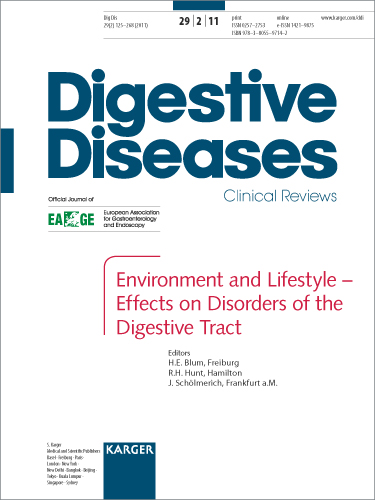
Menthacarin, a proprietary peppermint oil and caraway oil combination, improves multiple complaints in patients with functional gastrointestinal disorders – a systematic review and meta-analysis
2022 Dec 09 Digestive Diseases Madisch A, Frieling T, Zimmermann A, Hollenz M, Labenz J, Stracke B, et al.
Systematic Review Meta-Analysis CarawayMenthacarin, derived from peppermint and caraway oil, effectively reduces symptoms, offers a safe alternative to risky drugs like cisapride, and shows promise for managing stomach problems in primary care.
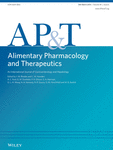
Systematic review and meta‐analysis: efficacy of peppermint oil in irritable bowel syndrome
2022 Aug 09 Alimentary Pharmacology & Therapeutics Ingrosso MR, Ianiro G, Nee J, Lembo AJ, Moayyedi P, Black CJ, et al.
Systematic Review Meta-Analysis Irritable Bowel Syndrome Peppermint OilPeppermint oil proved more effective than placebo in treating irritable bowel syndrome symptoms, but with an increased rate of adverse events.
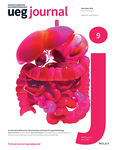
A trial‐based economic evaluation of peppermint oil for the treatment of irritable bowel syndrome
2021 Sep United European Gastroenterology Journal Weerts ZZRM, Essers BAB, Jonkers DMAE, Willems JIA, Janssen DJPA, Witteman BJM, et al.
Randomised Controlled Trial Peppermint Oil Peppermint Irritable Bowel SyndromeSmall-intestinal release peppermint oil is a cost-effective treatment for Irritable Bowel Syndrome, yielding modest quality of life gains and relieving abdominal pain.
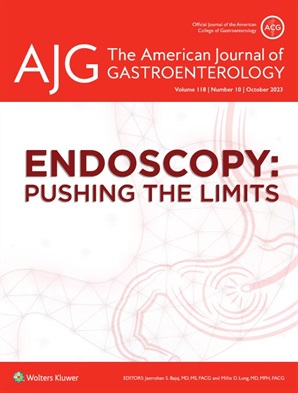
Peppermint Oil Treatment for Irritable Bowel Syndrome: A Randomized Placebo-Controlled Trial
2021 Jul 28 American Journal of Gastroenterology Nee J, Ballou S, Kelley JM, Kaptchuk TJ, Hirsch W, Katon J, et al.
Randomised Controlled Trial Irritable Bowel Syndrome Peppermint OilPeppermint oil and a placebo both exhibited substantial improvement in relieving symptoms of irritable bowel syndrome, without any significant differences between them.

A Combination of Peppermint Oil and Caraway Oil for the Treatment of Functional Dyspepsia: A Systematic Review and Meta-Analysis
2019 Nov 14 Evidence-Based Complementary and Alternative Medicine Juanjuan Li, Lin Lv, Jiaqi Zhang, Lin Xu, Enjin Zeng, Zedan Zhang, et al.
Systematic Review Meta-Analysis Digestive Health Peppermint CarawayA combination of peppermint oil and caraway oil is an effective and safe short-term treatment for functional dyspepsia.
Research insights are moderated by the Research Hub team and offer an at-a-glance overview of interesting research findings.

2022 Digestive Diseases
Menthacarin, derived from peppermint and caraway oil, effectively reduces symptoms, offers a safe alternative to risky drugs like cisapride, and shows promise for managing stomach problems in primary care.
Systematic Review Caraway
Menthacarin, a proprietary peppermint oil and caraway oil combination, improves multiple complaints in patients with functional gastrointestinal disorders – a systematic review and meta-analysis
Madisch A, Frieling T, Zimmermann A, Hollenz M, Labenz J, Stracke B, et al.

2022 Alimentary Pharmacology & Therapeutics
Peppermint oil proved more effective than placebo in treating irritable bowel syndrome symptoms, but with an increased rate of adverse events.
Systematic Review Irritable Bowel Syndrome
Systematic review and meta‐analysis: efficacy of peppermint oil in irritable bowel syndrome
Ingrosso MR, Ianiro G, Nee J, Lembo AJ, Moayyedi P, Black CJ, et al.

2021 United European Gastroenterology Journal
Small-intestinal release peppermint oil is a cost-effective treatment for Irritable Bowel Syndrome, yielding modest quality of life gains and relieving abdominal pain.
Randomised Controlled Trial Irritable Bowel Syndrome Peppermint
A trial‐based economic evaluation of peppermint oil for the treatment of irritable bowel syndrome
Weerts ZZRM, Essers BAB, Jonkers DMAE, Willems JIA, Janssen DJPA, Witteman BJM, et al.

2021 American Journal of Gastroenterology
Peppermint oil and a placebo both exhibited substantial improvement in relieving symptoms of irritable bowel syndrome, without any significant differences between them.
Randomised Controlled Trial Irritable Bowel Syndrome
Peppermint Oil Treatment for Irritable Bowel Syndrome: A Randomized Placebo-Controlled Trial
Nee J, Ballou S, Kelley JM, Kaptchuk TJ, Hirsch W, Katon J, et al.

2019 Evidence-Based Complementary and Alternative Medicine
A combination of peppermint oil and caraway oil is an effective and safe short-term treatment for functional dyspepsia.
Systematic Review Caraway Digestive Health Peppermint
A Combination of Peppermint Oil and Caraway Oil for the Treatment of Functional Dyspepsia: A Systematic Review and Meta-Analysis
Juanjuan Li, Lin Lv, Jiaqi Zhang, Lin Xu, Enjin Zeng, Zedan Zhang, et al.
Review Articles
Review articles summarise and critically evaluate the current state of research on a specific topic or field by synthesising multiple primary research studies.

Menthacarin, a proprietary peppermint oil and caraway oil combination, improves multiple complaints in patients with functional gastrointestinal disorders – a systematic review and meta-analysis
2022 Dec 09 Digestive Diseases Madisch A, Frieling T, Zimmermann A, Hollenz M, Labenz J, Stracke B, et al.
Systematic Review Meta-Analysis CarawayMenthacarin, derived from peppermint and caraway oil, effectively reduces symptoms, offers a safe alternative to risky drugs like cisapride, and shows promise for managing stomach problems in primary care.

Systematic review and meta‐analysis: efficacy of peppermint oil in irritable bowel syndrome
2022 Aug 09 Alimentary Pharmacology & Therapeutics Ingrosso MR, Ianiro G, Nee J, Lembo AJ, Moayyedi P, Black CJ, et al.
Systematic Review Meta-Analysis Irritable Bowel Syndrome Peppermint OilPeppermint oil proved more effective than placebo in treating irritable bowel syndrome symptoms, but with an increased rate of adverse events.

A Combination of Peppermint Oil and Caraway Oil for the Treatment of Functional Dyspepsia: A Systematic Review and Meta-Analysis
2019 Nov 14 Evidence-Based Complementary and Alternative Medicine Juanjuan Li, Lin Lv, Jiaqi Zhang, Lin Xu, Enjin Zeng, Zedan Zhang, et al.
Systematic Review Meta-Analysis Digestive Health Peppermint CarawayA combination of peppermint oil and caraway oil is an effective and safe short-term treatment for functional dyspepsia.
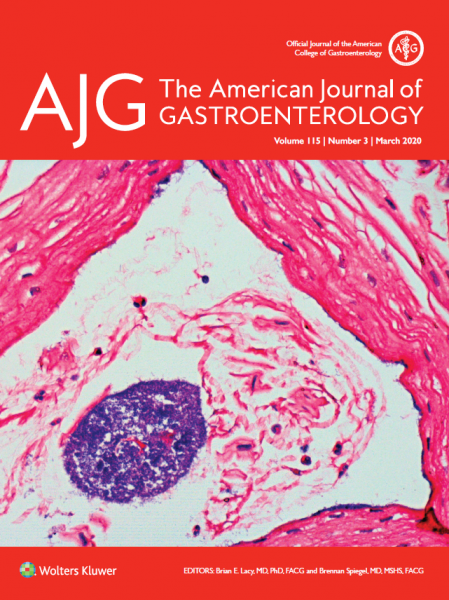
Peppermint Oil Decreases Colonic Spasm Without Significantly Affecting Cecal Intubation Time and Adenoma Detection Rate: A Systematic Review and Meta-Analysis
2019 Oct The American Journal of Gastroenterology Nehme, Fredy; Al Momani, Laith; Alomari, Mohammad ; Zafar, Yousaf
Systematic Review Meta-Analysis Peppermint Oil Peppermint Irritable Bowel SyndromePeppermint oil significantly reduces colonic spasm during colonoscopy, but does not affect the adenoma detection rate or cecal intubation time.

The impact of peppermint oil on the irritable bowel syndrome: a meta-analysis of the pooled clinical data
2019 Jan 17 BMC Complementary Medicine and Therapies Alammar N, Wang L, Saberi B, Nanavati J, Holtmann G, Shinohara RT, et al.
Systematic Review Meta-Analysis Irritable Bowel Syndrome Peppermint OilPeppermint oil has been shown to be a safe and effective treatment for pain and overall symptoms in adults suffering from irritable bowel syndrome.
Clinical Trials
Clinical trials are research studies that involve people and are conducted to evaluate the safety and efficacy of new treatments or interventions, such as drugs, medical devices, or behavioural therapies.

A trial‐based economic evaluation of peppermint oil for the treatment of irritable bowel syndrome
2021 Sep United European Gastroenterology Journal Weerts ZZRM, Essers BAB, Jonkers DMAE, Willems JIA, Janssen DJPA, Witteman BJM, et al.
Randomised Controlled Trial Peppermint Oil Peppermint Irritable Bowel SyndromeSmall-intestinal release peppermint oil is a cost-effective treatment for Irritable Bowel Syndrome, yielding modest quality of life gains and relieving abdominal pain.

Peppermint Oil Treatment for Irritable Bowel Syndrome: A Randomized Placebo-Controlled Trial
2021 Jul 28 American Journal of Gastroenterology Nee J, Ballou S, Kelley JM, Kaptchuk TJ, Hirsch W, Katon J, et al.
Randomised Controlled Trial Irritable Bowel Syndrome Peppermint OilPeppermint oil and a placebo both exhibited substantial improvement in relieving symptoms of irritable bowel syndrome, without any significant differences between them.
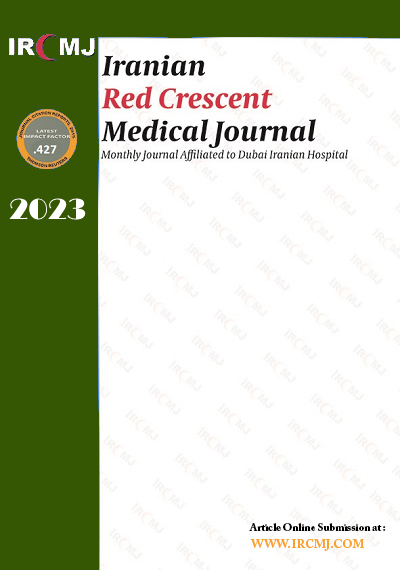
Effect of Peppermint Oil on Premenstrual Syndrome: A Randomized, Double-Blind Placebo-Controlled Study
2019 Apr 24 Iranian Red Crescent Medical Journal Agajani Delavar M, Ebrahimi S, Esmaeilzadeh S, Khamse A
Randomised Controlled Trial Peppermint Peppermint Oil Premenstrual SyndromePeppermint oil capsules may significantly reduce the severity of premenstrual syndrome symptoms in reproductive-age women.
Study Protocols
Published study protocols are detailed plans that outline the objectives, methodology, statistical analyses, and organisation of a research study that have been made publicly available for others to review and use as a reference.
Presentation Slides

Systematic Review
Menthacarin, derived from peppermint and caraway oil, effectively reduces symptoms, offers a safe alternative to risky drugs like cisapride, and shows promise for managing stomach problems in primary care.
Madisch A, Frieling T, Zimmermann A, Hollenz M, Labenz J, Stracke B, Miehlke S

Systematic Review
Peppermint oil proved more effective than placebo in treating irritable bowel syndrome symptoms, but with an increased rate of adverse events.
Ingrosso MR, Ianiro G, Nee J, Lembo AJ, Moayyedi P, Black CJ, Ford AC

Randomised Controlled Trial
Small-intestinal release peppermint oil is a cost-effective treatment for Irritable Bowel Syndrome, yielding modest quality of life gains and relieving abdominal pain.
Weerts ZZRM, Essers BAB, Jonkers DMAE, Willems JIA, Janssen DJPA, Witteman BJM, Clemens CHM, Westendorp A, Masclee AAM, Keszthelyi D

Randomised Controlled Trial
Peppermint oil and a placebo both exhibited substantial improvement in relieving symptoms of irritable bowel syndrome, without any significant differences between them.
Nee J, Ballou S, Kelley JM, Kaptchuk TJ, Hirsch W, Katon J, Cheng V, Rangan V, Lembo A, Iturrino J

Systematic Review
A combination of peppermint oil and caraway oil is an effective and safe short-term treatment for functional dyspepsia.
Juanjuan Li, Lin Lv, Jiaqi Zhang, Lin Xu, Enjin Zeng, Zedan Zhang, Fengyun Wang, Xudong Tang

Systematic Review
Peppermint oil significantly reduces colonic spasm during colonoscopy, but does not affect the adenoma detection rate or cecal intubation time.
Nehme, Fredy; Al Momani, Laith; Alomari, Mohammad ; Zafar, Yousaf

Randomised Controlled Trial
Peppermint oil capsules may significantly reduce the severity of premenstrual syndrome symptoms in reproductive-age women.
Agajani Delavar M, Ebrahimi S, Esmaeilzadeh S, Khamse A

Systematic Review
Peppermint oil has been shown to be a safe and effective treatment for pain and overall symptoms in adults suffering from irritable bowel syndrome.
Alammar N, Wang L, Saberi B, Nanavati J, Holtmann G, Shinohara RT, Mullin GE
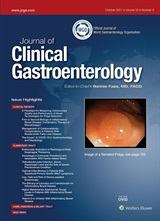
Systematic Review
Peppermint oil is a safe and effective short-term treatment for irritable bowel syndrome.
Khanna, Reena ; MacDonald, John K. ; Levesque, Barrett G.
Executive Summary
Write an executive summary in the form of a blog article on the topic of "Research into Chinese medicine treatment for Peppermint Oil" summarising the research below and using language that can be easily understood by patients and avoiding medical jargon using a professional and caring tone of voice.
Write an executive summary in the form of a blog article on the topic of "Researched Chinese medicine treatments for Peppermint Oil" summarising the research below in an objective and easy to understand way, and using language that can be easily understood by patients. Group the article into Chinese medicine treatments first, followed by nutrition and other treatments. Avoid using medical jargon and use a professional and caring tone of voice.
Write me a concise but easy to understand executive summary on the topic of "Chinese medicine treatments for Peppermint Oil" based on the following research that I will give you. Your summary should be 2 paragraphs long in Australian English spelling and include references to the studies.
A Systematic Review published in 2022 in the journal Digestive Diseases found that Menthacarin, derived from peppermint and caraway oil, effectively reduces symptoms, offers a safe alternative to risky drugs like cisapride, and shows promise for managing stomach problems in primary care. Menthacarin works well in reducing symptoms like pain and bloating. It is safe and could be an alternative to other drugs like cisapride, which can be risky. This herbal treatment seems useful for stomach problems in primary care, but more research is needed. In short, Menthacarin, made from peppermint and caraway oil, is a safe and effective option for stomach issues in primary care.
A Systematic Review published in 2022 in the journal Alimentary Pharmacology & Therapeutics found that Peppermint oil proved more effective than placebo in treating irritable bowel syndrome symptoms, but with an increased rate of adverse events. In evaluating the effectiveness and safety of peppermint oil for irritable bowel syndrome, the researchers searched medical literature for randomised controlled trials involving peppermint oil treatments in IBS. A systematic review and analysis included trials up to the date of April 2nd, 2022. The team assessed the efficacy and safety of the peppermint oil treatment based on various factors including effect on global IBS symptoms and abdominal pain along with incidence of adverse events or gastro-oesophageal reflux. From the literature review, 10 suitable randomised control trials were identified, encompassing a total of 1030 patients. The results showed that peppermint oil performed better than a placebo in lessening overall irritable bowel syndrome symptoms and reducing abdominal pain. However, this was coupled with a higher rate of recorded adverse events in patients who were administered peppermint oil. Despite the positive performance of peppermint oil over placebo, the evidence quality considered for this conclusion was very low.
A Randomised Controlled Trial published in 2021 in the journal United European Gastroenterology Journal found that Small-intestinal release peppermint oil is a cost-effective treatment for Irritable Bowel Syndrome, yielding modest quality of life gains and relieving abdominal pain. In the research study, a multicenter, randomized, placebo-controlled trial was carried out to evaluate the cost-effectiveness of small-intestinal release peppermint oil - an often used treatment - in patients with Irritable Bowel Syndrome (IBS). The cost-effectiveness was analyzed from a societal perspective, using two different approaches: costs per Quality of Life Years (QALY) and costs per successfully treated patient or abdominal pain responder. The later was defined according to Food and Drug Administration (FDA) definitions. Sensitivity analyses were also conducted to further substantiate the results. This comprehensive evaluation involved 126 IBS patients randomly assigned to receive either placebo or peppermint oil. The findings showcase that peppermint oil took precedence as a dominant and effective treatment compared to placebo in considerable number of cases. Not only did it prove more successful at reducing the abdominal pain experienced by IBS patients, but analysis also positioned it as a viable option with regards to the cost-effectiveness ratio based on QALY. The results displayed that peppermint oil came out as a financially savvy treatment in varying scenarios, demonstrating a high probability of cost-effectiveness when evaluated using the abdominal pain responder outcome measure.
A Randomised Controlled Trial published in 2021 in the journal American Journal of Gastroenterology found that Peppermint oil and a placebo both exhibited substantial improvement in relieving symptoms of irritable bowel syndrome, without any significant differences between them. In a meticulous six-week study conducted at a single academic center in the United States, individuals diagnosed with moderate to severe irritable bowel syndrome were randomly assigned to take either enteric-coated peppermint oil or a placebo thrice daily. The study was randomized, double-blinded, and placebo-controlled, ensuring unbiased results. The main outcome measure to assess the effectivity of the treatments was the change in irritable bowel syndrome severity scores from the start of treatment to the conclusion of the six-week period. The results revealed marked improvements in the severity of irritable bowel syndrome symptoms in both groups—from those taking peppermint oil to those on placebo—from the beginning of the regimen to the end of six weeks. Although the peppermint oil group reported a slightly less improvement than the placebo group, the difference in their results was considered insignificant. These findings remained consistent even after conducting sensitivity analyses and accommodating missing data—there were still no observable significant differences in the outcomes between the two groups.
A Systematic Review published in 2019 in the journal Evidence-Based Complementary and Alternative Medicine found that A combination of peppermint oil and caraway oil is an effective and safe short-term treatment for functional dyspepsia. It is the first attempt to generate RCT data of peppermint oil and caraway oil (POCO) for the treatment of functional dyspepsia. In this meta-analysis, we evaluated the efficacy and safety of POCO based on five RCTs with 578 patients. The results demonstrated that POCO can significantly improve global symptoms of FD, with an NNT of 3 when data from four studies were pooled. The positive and significant efficacy in terms of improvement in epigastric pain was also shown between the two studies. Moreover, the available data have found that the safety profile of POCO is similar to placebo. The strength of our findings is that no significant heterogeneity was detected across the studies. Besides, study designs of the included trials were fairly similar and the duration of treatment was identical. We used rigorous methodology as follows and believe that the results reflect the best available current evidence. Firstly, our literature search was comprehensive including all RCTs regardless of publication type and language. Besides, we adopted the intention-to-treat analysis on all data to enhance the robustness of the results.
A Systematic Review published in 2019 in the journal The American Journal of Gastroenterology found that Peppermint oil significantly reduces colonic spasm during colonoscopy, but does not affect the adenoma detection rate or cecal intubation time. The methodology of this research primarily involved a review of randomized controlled trials that compared the use of peppermint oil and a placebo during colonoscopies. The various trials selected for review were identified through comprehensive searches of databases such as Medline, Google Scholar, and Cochrane up until May 2019. The analysis took into account key variables, including the extent of peristalsis inhibition, cecal intubation time, and adenoma detection rates. In terms of results, there was significant variation in the dosage and administration of the peppermint oil among the 5 trials that qualified for the review. Comparisons were made between a group of 623 subjects who received peppermint oil and a placebo group of 239 individuals. It was found that peppermint oil led to a significant increase in the complete inhibition of colonic peristalsis. However, the cecal intubation times and adenoma detection rates were similar across both the peppermint oil and placebo groups, despite the high level of variation observed.
A Randomised Controlled Trial published in 2019 in the journal Iranian Red Crescent Medical Journal found that Peppermint oil capsules may significantly reduce the severity of premenstrual syndrome symptoms in reproductive-age women. The study was a randomized, double-blind, placebo-controlled trial involving 50 high school students in Babol, Iran who were diagnosed with premenstrual syndrome. Participants were divided into two groups. One group was given Colpermin® capsules, which contained peppermint oil, while the other group was given a placebo. These were taken twice daily from the 15th day of one menstrual period to the first day of the next period across two menstrual cycles. The severity of PMS was evaluated at the first luteal phase of the menstrual cycle and again at the third luteal phase, using a 28-item PMS checklist. Over two menstrual cycles, participants who took the peppermint oil capsules experienced a more significant decrease in premenstrual syndrome scores compared to those in the placebo group. Thus, peppermint oil has demonstrated its potential as an effective treatment in managing the severity of premenstrual syndrome symptoms in this sample.
A Systematic Review published in 2019 in the journal BMC Complementary Medicine and Therapies found that Peppermint oil has been shown to be a safe and effective treatment for pain and overall symptoms in adults suffering from irritable bowel syndrome. In their research, the authors conducted a systematic search across numerous scientific databases, including, but not limited to, MEDLINE, Cochrane Central Register of Controlled Trials, ClinicalTrials.gov, EMBASE, and Web of Science. The aim was to find randomized controlled trials that investigated the effects of peppermint oil on irritable bowel syndrome. They assessed the eligible studies using the Cochrane risk of bias tool. The primary outcomes they concentrated on were global improvement in irritable bowel syndrome symptoms and abdominal pain. Through their intensive research, they were able to include twelve randomized trials with 835 patients. They performed a random-effects meta-analysis on the primary outcomes. Peppermint oil was found to significantly improve global symptoms and reduce abdominal pain. This demonstrated that peppermint oil could be a beneficial treatment option for irritable bowel syndrome patients.
A Systematic Review published in 2014 in the journal Journal of Clinical Gastroenterology found that Peppermint oil is a safe and effective short-term treatment for irritable bowel syndrome. Nine studies that evaluated 726 patients were identified. The risk of bias was low for most of the factors assessed. Peppermint oil was found to be significantly superior to placebo for global improvement of IBS symptoms and improvement in abdominal pain. Although peppermint oil patients were significantly more likely to experience an adverse event, such events were mild and transient in nature. The most commonly reported adverse event was heartburn.
Moderation Tools
Topic
Sign In
Users not signed in are limited to viewing the 5 most recent items of content.
Cannot find full article? — 26 Aug 2021